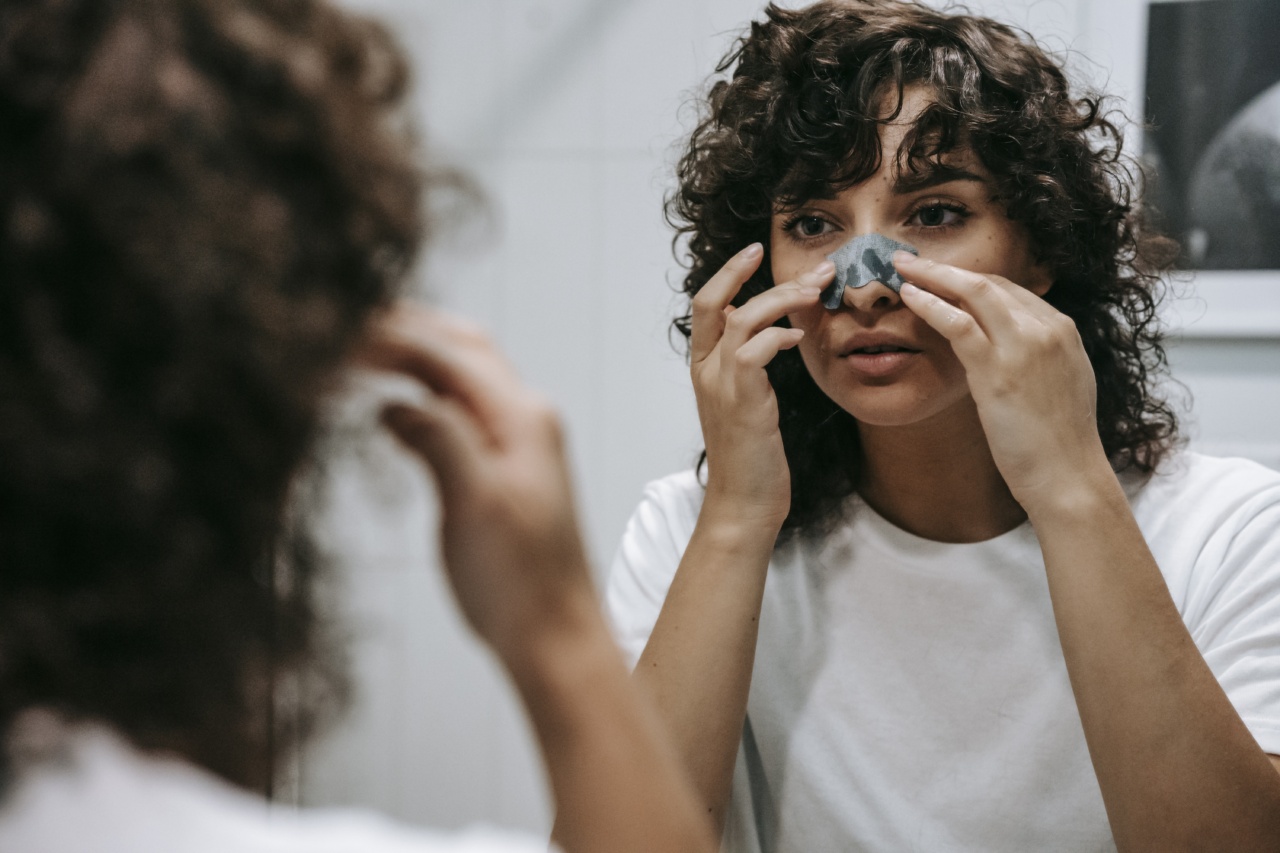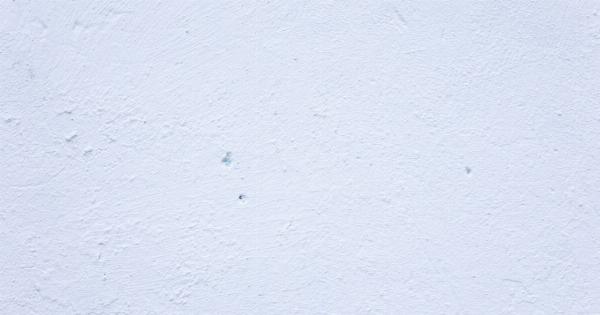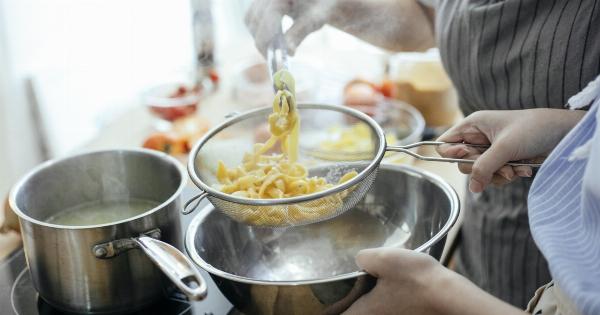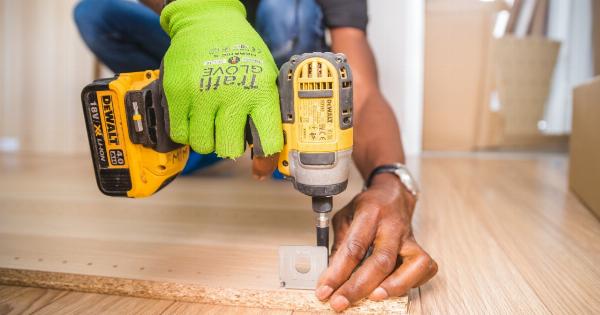Cleanliness is an essential part of maintaining good health. While we focus on washing our hands, brushing our teeth, and keeping our bodies clean, we often overlook an important area – our nose.
Proper nasal hygiene promotes healthy breathing, reduces the risk of infections, and improves overall well-being. In this article, we will unveil the beautiful way to clean your nose and highlight the importance of maintaining nasal hygiene.
The Importance of Nasal Hygiene
Nasal hygiene involves the cleansing and moisturizing of the nasal passages to promote optimal nasal function and health. Here are some reasons why nasal hygiene is important:.
Reducing Allergic Reactions
Allergens such as pollen, dust mites, pet dander, and mold spores can easily enter our nasal passages.
Regular cleaning of the nose helps to remove these allergens, reducing the risk of allergic reactions and associated symptoms like sneezing, itching, and congestion.
Preventing Infections
The nose serves as a gateway for various microorganisms, including bacteria and viruses, to enter our bodies.
By keeping the nasal passages clean, we can prevent the colonization of harmful pathogens, reducing the risk of respiratory infections like colds, sinusitis, and even the flu.
Improving Breathing
A clean nose allows for better airflow, which enhances breathing. When the nasal passages are congested due to mucus or debris accumulation, it can lead to snoring, mouth breathing, and disrupted sleep patterns.
By maintaining nasal hygiene, we can improve the quality of our breathing and overall sleep quality.
Preventing Dryness
Nasal dryness can occur due to factors like low humidity, heated indoor environments, or excessive exposure to air conditioning. Dry nasal passages may lead to discomfort, itching, nosebleeds, and an increased risk of infections.
Regular nasal cleansing helps to moisturize the nasal cavity, preventing dryness and promoting a healthy nasal environment.
Methods for Nasal Cleansing
There are multiple methods available for cleaning the nose. Let’s delve into some of the most effective and beautiful ways to maintain nasal hygiene:.
1. Saline Nasal Rinse
Saline nasal rinses involve using a saline solution to flush out the nasal passages. This method helps remove allergens, irritants, mucus, and debris, providing instant relief from congestion and promoting nasal health.
You can use a saline nasal rinse kit, a neti pot, or a squeeze bottle for this purpose.
2. Nasal Irrigation
Nasal irrigation involves the use of a gentle stream of saline solution that passes through one nostril and flows out from the other nostril. This technique helps to flush out excessive mucus, irritants, and allergens from the nasal passages.
Nasal irrigation can be done using a specially designed device called a nasal irrigator or a bulb syringe.
3. Nasal Sprays
Nasal sprays are available in different forms such as saline sprays, medicated sprays, or essential oil-based sprays. They help moisturize the nasal passages, relieve congestion, and reduce inflammation.
It is advisable to use nasal sprays as directed by healthcare professionals to avoid any adverse effects.
4. Steam Inhalation
Steam inhalation is a simple and natural method to cleanse your nose. By inhaling steam, the warm and moist air helps to loosen mucus, alleviate congestion, and soothe irritated nasal tissues.
You can use a bowl of hot water, adding a few drops of essential oils like eucalyptus or peppermint for additional benefits.
5. Nasal Cleansing Tools
Various devices are available in the market that assist in cleaning the nose effectively. These tools may include electronic nasal irrigators, nasal aspirators for infants, or nasal cleaning brushes.
It is important to choose these tools carefully and follow the instructions provided to ensure safe and effective cleansing.
Precautions and Tips for Nasal Hygiene
While cleaning your nose is important, there are a few precautions and tips you should keep in mind:.
1. Use Clean and Sterilized Equipment
Ensure that the nasal cleaning equipment you use is clean and sterilized to avoid introducing any harmful bacteria or infections into your nasal passages. Regularly clean and dry the equipment as per the manufacturer’s guidelines.
2. Use Distilled or Previously Boiled Water
If you are preparing saline solution at home for nasal rinses or irrigation, it is crucial to use distilled or previously boiled water to prevent the introduction of bacteria or parasites. Tap water may contain impurities that could cause infections.
3. Follow Proper Technique
When performing nasal cleanses like rinses or irrigation, it is essential to follow the proper technique as recommended by healthcare professionals or the device manufacturer. Incorrect techniques may cause discomfort or complications.
4. Don’t Overdo It
While it is important to maintain nasal hygiene, overdoing nasal rinses or irrigation can disrupt the natural balance of your nasal passages, leading to dryness or irritation.
Follow the recommended frequency and duration provided by healthcare professionals or product instructions.
Conclusion
Maintaining nasal hygiene is a beautiful way to promote overall health and well-being. By adopting the right methods and techniques, you can keep your nasal passages clean, reduce allergens and infections, improve breathing, and prevent dryness.
Remember to choose the right nasal cleansing method for your needs, follow proper techniques, and consult healthcare professionals if you have any concerns. Embrace the beauty of nasal hygiene and enjoy the benefits it brings to your daily life.

























